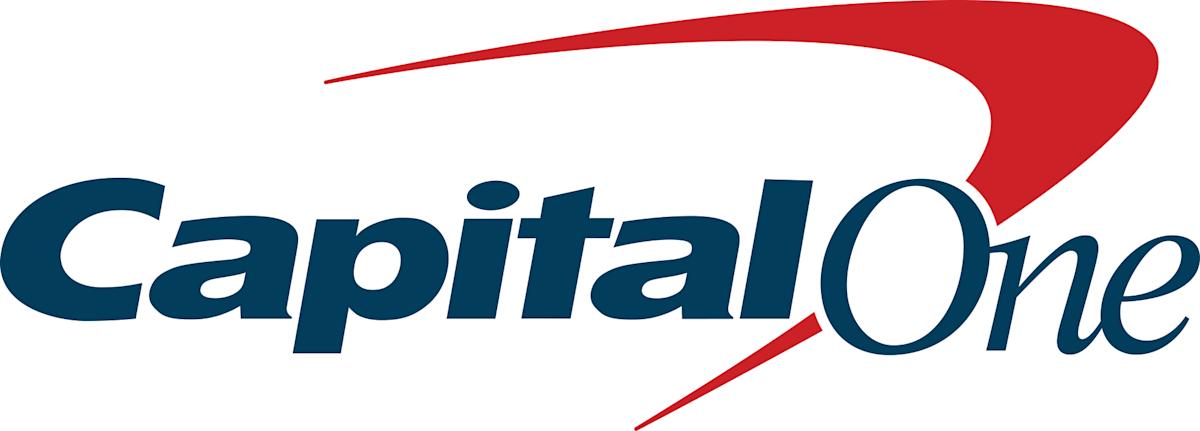Instructions

In a landmark financial merger, Capital One Financial Corporation has secured regulatory approval for its ambitious acquisition of Discover Financial Services. The groundbreaking deal received the green light from two key regulatory bodies: the Federal Reserve System's Board of Governors and the Office of the Comptroller of the Currency.
The strategic acquisition, announced on April 18, 2025, marks a significant milestone in the banking and financial services landscape. Capital One (NYSE: COF) and Discover (NYSE: DFS) have successfully navigated the complex regulatory approval process, paving the way for what promises to be a transformative union in the financial sector.
This merger represents a bold move that could potentially reshape consumer banking, credit services, and financial technology. Investors and industry analysts are closely watching the development, anticipating the potential synergies and competitive advantages this combination might create.
While specific details of the integration remain forthcoming, the approval signals a positive outlook for the proposed acquisition, bringing Capital One and Discover one step closer to completing their strategic combination.
Banking Titans Collide: Capital One's Bold Acquisition of Discover Reshapes Financial Landscape
In a groundbreaking move that promises to redefine the banking and financial services sector, two major financial powerhouses are set to merge in an unprecedented strategic alliance that could potentially transform the competitive dynamics of consumer banking and credit services.
A Transformative Financial Merger That Will Reshape Consumer Banking
The Strategic Rationale Behind the Landmark Acquisition
The proposed merger between Capital One and Discover represents a seismic shift in the financial services industry, driven by complex strategic considerations that extend far beyond simple corporate consolidation. By combining their respective strengths, these financial giants are positioning themselves to create a more robust, technologically advanced, and customer-centric banking ecosystem. The acquisition signals a profound understanding of the evolving financial landscape, where digital innovation, customer experience, and comprehensive financial solutions are becoming increasingly critical.
Capital One's strategic vision appears to be centered on creating a more integrated financial services platform that can compete more effectively in an increasingly digital and competitive market. The merger will likely enable the combined entity to leverage advanced technological infrastructure, expand their customer base, and develop more sophisticated financial products that can meet the increasingly complex needs of modern consumers.
Regulatory Approval and Market Implications
The landmark acquisition has successfully navigated the complex regulatory landscape, receiving critical approvals from key regulatory bodies including the Federal Reserve System and the Office of the Comptroller of the Currency. This approval represents more than a mere procedural milestone; it signifies a comprehensive evaluation of the merger's potential impact on market competition, consumer interests, and the broader financial ecosystem.
Regulatory scrutiny for such massive financial mergers is typically rigorous, involving extensive assessments of potential market concentration, consumer protection, and systemic financial stability. The approval suggests that regulators are confident in the merger's potential to create value while maintaining healthy market competition. This endorsement also reflects the evolving perspective of financial regulators who are increasingly receptive to strategic consolidations that promise technological innovation and enhanced consumer services.
Technological and Operational Synergies
The merger between Capital One and Discover represents a profound technological and operational convergence that extends well beyond traditional corporate consolidation. By combining their respective technological infrastructures, data analytics capabilities, and customer service platforms, the merged entity is poised to create a more sophisticated, responsive, and innovative financial services ecosystem.
Capital One has long been recognized for its technological prowess and data-driven approach to banking, while Discover brings its extensive experience in credit services and consumer financial products. This combination suggests the potential for developing more personalized financial solutions, advanced risk assessment models, and more intuitive digital banking experiences that can adapt to rapidly changing consumer preferences and technological trends.
Economic and Industry-Wide Implications
The acquisition transcends the immediate interests of Capital One and Discover, potentially signaling broader transformative trends in the financial services sector. As traditional banking models continue to be disrupted by technological innovation and changing consumer expectations, such strategic mergers represent a critical mechanism for financial institutions to remain competitive and relevant.
The merger could potentially trigger a wave of similar consolidations across the financial services landscape, as institutions seek to achieve greater scale, technological capabilities, and market reach. This could lead to a more concentrated yet potentially more innovative banking ecosystem, where technology and customer-centric approaches become primary differentiators.
Future Outlook and Strategic Positioning
As the financial services industry continues to evolve at an unprecedented pace, this merger positions the combined entity as a formidable player capable of navigating complex market dynamics. The strategic alignment between Capital One and Discover suggests a forward-looking approach that prioritizes technological innovation, customer experience, and comprehensive financial solutions.
The successful integration of these two financial powerhouses will likely serve as a critical case study for future corporate mergers in the financial sector, offering insights into the complex interplay of technological innovation, regulatory compliance, and strategic vision.
